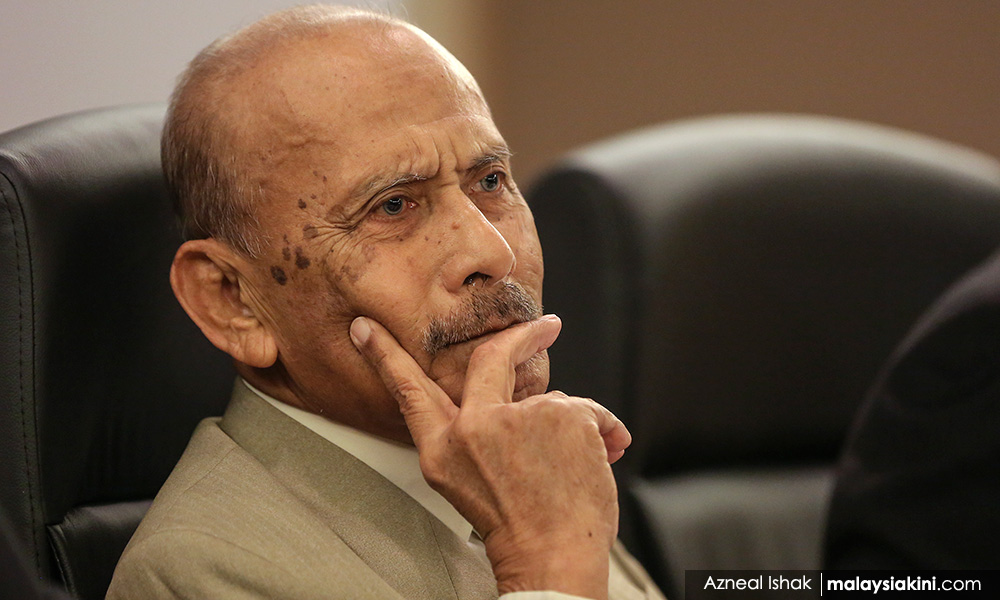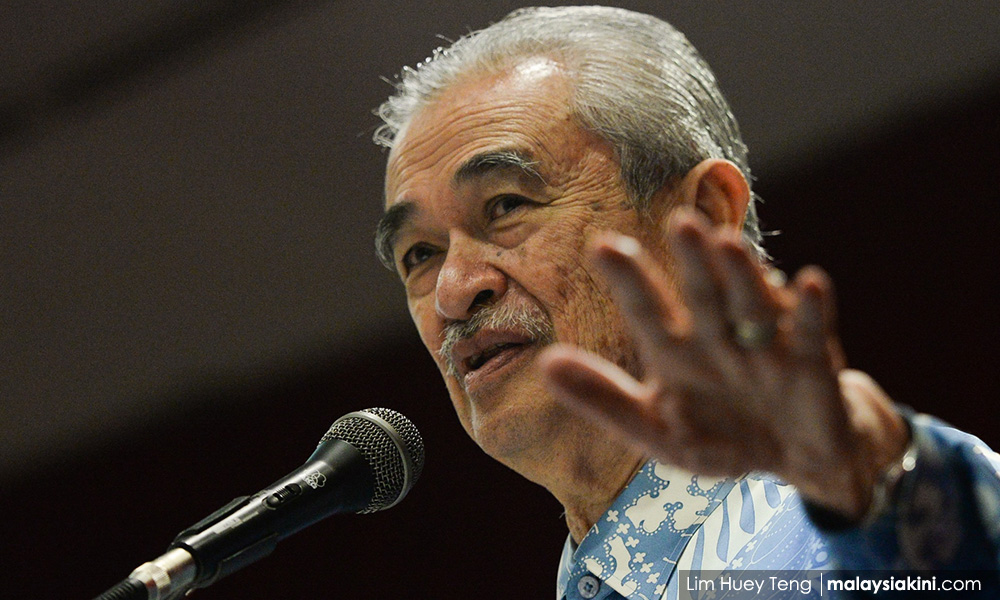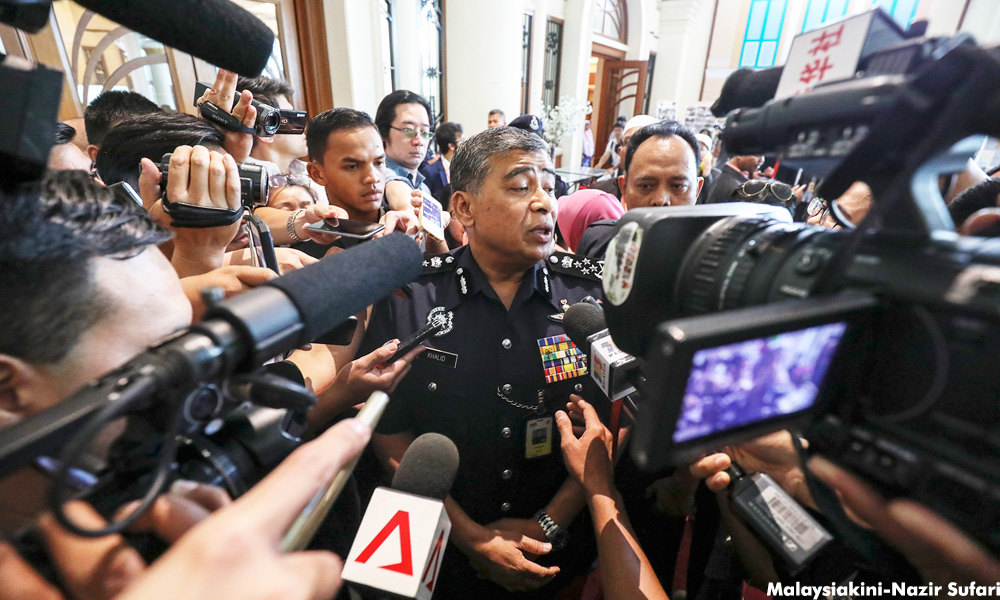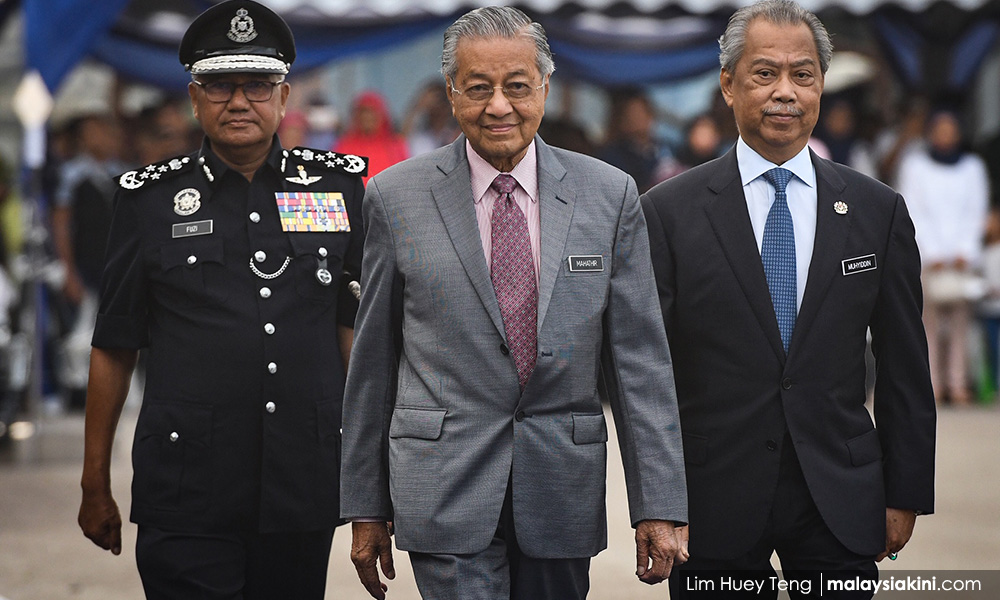17 years on, we're still haunted by the promise of an IPCMC
After 17 years since a royal commission of inquiry (RCI) recommended the setting up of an Independent Police Complaints and Misconduct Commission (IPCMC), it is no closer to becoming a reality.
The closest it came to fruition was when the Pakatan Harapan government tabled the IPCMC Bill in Parliament in 2019 but due to criticism about a lack of consultation, the bill was deferred for review by a parliamentary select committee (PSC).
That also marked the death of the bill as the then government never got to implement the PSC's recommendations. The Harapan administration collapsed in February 2020.
Its successor, the Perikatan Nasional (PN) government, lacking the political will to address the issue of police accountability at the expense of an important vote bank, drastically watered down the IPCMC with its own Independent Police Conduct Commission (IPCC) Bill.
Then prime minister Muhyiddin Yassin tabled the IPCC Bill in the Dewan Rakyat on Aug 26, 2020.
He has since been ousted but Prime Minister Ismail Sabri Yaakob, who largely retained his predecessor's cabinet, is determined to keep the watered-down version.
Critics have been quick to respond, pointing out that the new proposed commission does not meet the recommendations made by the RCI on the police force back in 2005.
They also expressed concern over its perceived lack of independence and weakened powers.
Whatever the case, this move by the new government is the latest in the IPCMC saga that has spanned 17 years, four governments, five prime ministers, seven inspectors-general of police and four name changes.
Malaysiakini revisits the long, troubled history of the IPCMC.
The birth of an idea
The idea for an IPCMC was first mooted in 2005.
It was one of 125 recommendations made by an RCI - the Special Commission to Enhance the Operation and Management of the Royal Malaysia Police (SCEOMRMP) - established when Abdullah Ahmad Badawi was the fifth prime minister of Malaysia under the BN government.
The 16-member RCI, headed by former chief justice Mohamed Dzaiddin Abdullah, was formed in February 2004 during the tenure of the late former inspector-general of police (IGP) Mohd Bakri Omar.
Former IGP Mohammed Hanif Omar was the royal commission's deputy chairperson.

Among others, the RCI was tasked with looking into concerns over custodial deaths, remand orders and corruption in the police force.
The commission reportedly received over 900 complaints of abuse, including custodial deaths, physical and psychological abuse of detainees and lack of transparency.
After a 15-month study, the RCI released a damning 600-page report which included recommendations for an independent watchdog - arguably the most powerful watchdog ever proposed in Malaysia - to investigate claims of police misconduct.
If formed, the seven-member committee was to report directly to Parliament, bypassing the prime minister to ensure its investigations are made public.
A committee headed by then attorney-general Abdul Gani Patail was formed to study the watchdog proposal.
However, the police back then expressed reservations about the body, labelling certain provisions in a draft bill as "draconian".
Among concerns were the lack of avenue for an officer to appeal any decision, the retrospective effect of the proposal which allows for dismissal upon being found guilty, ambiguity surrounding the definition of “misconduct” and that the IPCMC would not be bound by the rules of evidence or the usual lawyer-client privileges.
The police force also objected to the provision that the commission would be empowered to initiate its own investigations even if no police officer was implicated or suspected of misconduct.
It was reported that the RCI had drawn its model using examples from the police integrity commissions of Australia, Hong Kong and the United Kingdom.
The SCC, then EAIC
In 2006, Mohd Bakri rejected the IPCMC, saying the powers of the Police Force Commission (SPP), as the disciplinary body, should be maintained.
In an act of unprecedented rebellion, the force attacked the formation of the IPCMC in an internal police bulletin at the time called Berita Bukit Aman, reportedly published at the behest of Mohd Bakri himself.
The IPCMC was deemed unconstitutional and prejudicial to national security and public order, could "cause a state of anarchy", and was said to undermine the powers of both the ruling coalition and the IGP.
The bulletin also warned that the force would vote for the opposition in the next general election should the commission be established.
However, the police chief later gave his assurance that the police were always loyal to the ruling government.
Musa Hassan, who took over from Mohd Bakri as police chief that year (2006), said while the police were not opposed to the IPCMC in its entirety, they were concerned about the lack of an avenue to appeal against its decisions. He said this was "unfair" to the officers.
As the years progressed, civil society groups, opposition lawmakers and NGOs continued to demand the formation of IPCMC, while the BN government and police top brass continued to resist such calls.

In 2009, the Abdullah Ahmad Badawi administration backtracked on its promise to establish the commission and instead introduced a much weaker Special Complaints Commission (SCC), which had been tabled in Parliament in December 2007.
The SCC, which covered all enforcement agencies, consisted of a chairperson to be appointed by the prime minister, the IGP, the Anti-Corruption Agency (now MACC) director-general and three other members to be appointed by the prime minister.
The commission could also appoint officers from the Anti-Corruption Agency, Bank Negara, Securities Commission, National Audit Department, the police force and other officers from the public service on secondment to the commission as task force members.
The latter provision directly contradicted the RCI recommendation that no police officer, former or serving, could be appointed as a commissioner.
Even so, the SCC could investigate all enforcement officers at the federal level, while the IPCMC could only probe police personnel.
Criticism over the SCC’s lack of power and independence led to subsequent readings of the SCC Bill in the Dewan Rakyat to be postponed.
It was later renamed the Enforcement Integrity Commission Bill and then the Enforcement Agency Integrity Commission (EAIC) Bill.
The EAIC Bill - also known as the Siap Bill - was eventually tabled in 2009 and covered 21 government agencies.
Enter prime minister No 2
Even so, it only actually came into force in 2011, after the government under the tenure of then prime minister Najib Abdul Razak pledged to improve the EAIC instead of establishing the IPCMC.
However, the EAIC was said to lack “teeth" as it merely recommended action but did not have the authority to take action against any misconduct.

Early on, the EAIC claimed it was already plagued with trust issues, alleging that while the public and human rights groups were aware of its existence, many failed to raise complaints of serious police abuse with it.
These included alleged cases of police brutality during the Bersih rallies in 2011.
On demands for an IPCMC, then police chief Khalid Abu Bakar also said in 2014 that the force was not against the commission but felt that it treated them “like second-class citizens” without adequate rights under the law.
Short-lived 'Harapan' for IPCMC
Fast-forward three years and Harapan, under "Item 20" of its election manifesto, promised to implement the IPCMC within its first term of government.
The winds of change that heralded a new government the following year, in 2018, also seemed to change the police top brass’ perception of the IPCMC.
Khalid’s successor Mohamad Fuzi Harun said the police accepted the possible formation of the IPCMC as long as the rights of the police were protected and a representative from the force was part of the commission.
His number two at the time, Noor Rashid Ibrahim, also heralded such a move, saying it would enhance the integrity and capabilities of the police.
However, Fuzi later said the police objected to the IPCMC's usurpation of the police's power to take disciplinary action against its personnel under Article 140 of the Federal Constitution.
Fuzi's successor Abdul Hamid Bador has been more agreeable to the setting up of the IPCMC as long as it guaranteed that the role and power of the police force would not be eroded.

Interestingly, then home minister Muhyiddin said the government was committed to setting up the commission and that he would try to ease the police force's concern that police personnel would become targets.
Under the country’s seventh prime minister Dr Mahathir Mohamad, the long-awaited IPCMC Bill was tabled in Parliament on July 18, 2019, with the IPCMC set to replace the EAIC.
Again, amidst opposition from the BN, debates for the bill were postponed twice. It was also referred to the Parliamentary Select Committee for the Consideration of Bills for review.
Harapan had aimed to table the bill for its second and third readings during the Dewan Rakyat's first session of 2020.
However, the coalition collapsed in late February that year and was replaced by PN.
Fast forward to today, Malaysia has yet another prime minister and a new IGP — Ismail Sabri Yaakob and Acryl Sani Abdullah Sani — and is one step closer to seeing the IPCC made real.
The Bill was tabled for the second reading during the recently concluded Dewan Rakyat session, which ran from Sept 13 to yesterday (Oct 12).
Undeterred, civil society groups are crying foul, stating that PN's IPCC will be even worse than the EAIC.
If the original IPCMC was a coconut, the IPCC would be the husk, they said.
Seventeen years on, the country's government after government continue to resort to symbolic appeasement over a commitment to police accountability. - Mkini
✍ Credit given to the original owner of this post : ☕ Malaysians Must Know the TRUTH
🌐 Hit This Link To Find Out More On Their Articles...🏄🏻♀️ Enjoy Surfing!




















Post a Comment